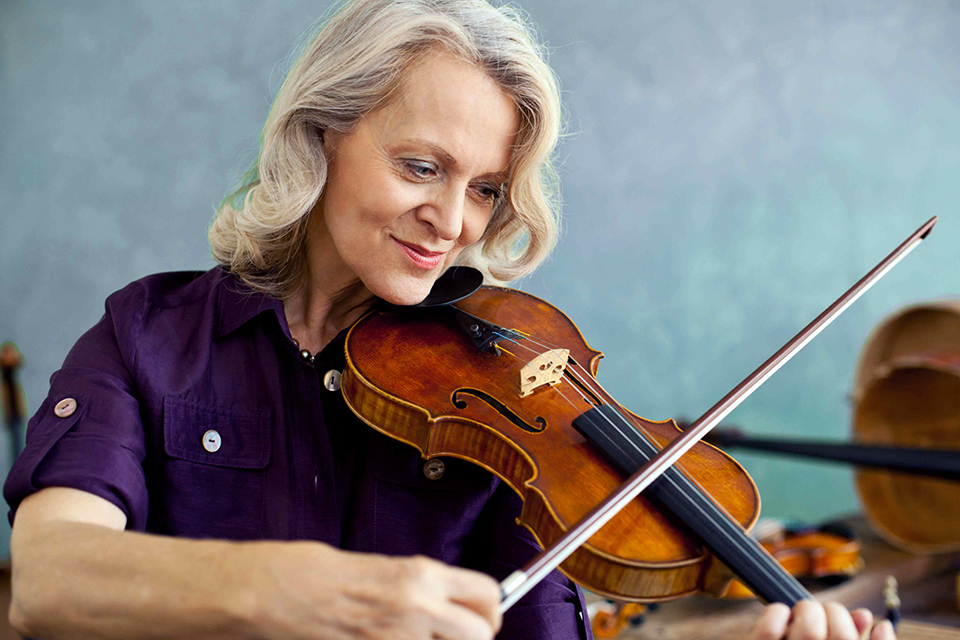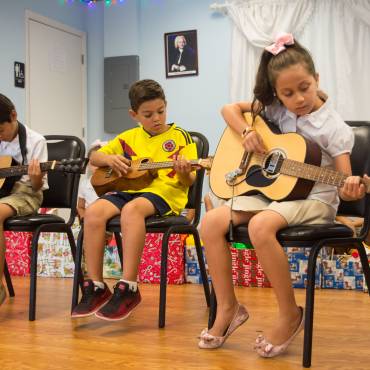Learning Music in Later Years
Starting or returning to music in later years can be one of the most rewarding pursuits in retirement.
Music education writer Alice McCarthy says, “Learning music in older adulthood brings a unique fulfillment. It’s not just about gaining a new skill; it’s about reigniting curiosity, enhancing memory, and feeling accomplished in ways that keep the mind sharp and the heart engaged.” For many seniors or retirees, this sense of curiosity and growth is exactly what they’re looking for in their post-career years.
Our guitar instructor, Josh Scheible, loves working with older adults because they typically have clearly defined interests. “It’s great to work with students who have discovered what they enjoy learning or what they want to learn. I love helping build upon those passions, and that’s fun for both me and my students.”
Here are some key benefits that come with learning an instrument as an older adult:
- Cognitive Benefits: Studies show that learning music enhances memory and improves cognitive flexibility, helping to delay cognitive decline. Playing an instrument requires focus, multitasking, and problem-solving skills, which keep the brain active.
- Emotional Wellness: Learning music provides a positive outlet for emotions, creating a sense of achievement and resilience. The late music educator Shirley Cason noted, “In music, seniors find a way to express themselves without words, reconnecting to memories and dreams.”
- Social Connection: Music lessons offer an excellent way to connect with others, whether through one-on-one lessons or community performances. This connection reduces feelings of isolation and builds a sense of community.
Unlike the structured environments of youth, adults approach music as a personal journey. No matter the instrument or skill level, the experience brings a refreshing sense of accomplishment and excitement, making every practice session feel like a new adventure.



Add Comment